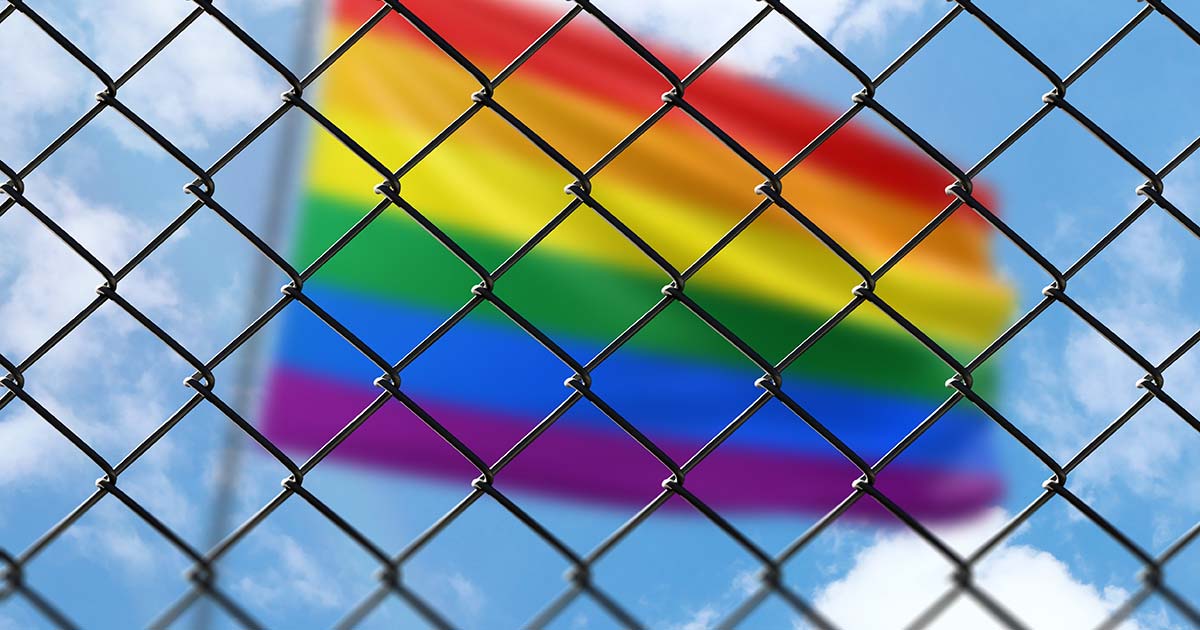Mali’s Military Junta Has Made Homosexuality a Crime – What the New Law Says

A bloodless coup in 2020 saw the military take control of Mali. Since then there have been growing reports of a declining human rights record in the west African country.
The new leaders – the National Transitional Council – have clamped down on opposition politicians and the media. Promised elections have not been held. Now new laws have been passed that criminalise same-sex relations – and any citizen seen to encourage homosexuality.
Christophe Broqua is an anthropologist who researches lesbian, gay, bisexual, transgender, intersex and queer (LGBTIQ+) life in west Africa, including in Mali. We asked him about the developments.
What does the law now say about same-sex sexual relations?
The new penal code was announced in October 2024 and came into effect on 13 December. It contains various new articles on issues of gender and sexuality. While it condemns gender-based violence, it also criminalises homosexuality.
Same-sex relationships are addressed in three articles. Not only is same-sex practice now criminal and punishable by law in Mali, but anyone seen to be favourable to homosexuality can also be prosecuted.
The first two of the new articles concern “offences against public decency”. They reproduce the public indecency and indecent assault articles of the previous penal code but add same-sex relations to them.
Article 325-1 states:
Any unnatural sexual act performed publicly with an individual of the same sex also constitutes public indecency. Indecent exposure, committed publicly and intentionally, is punishable by two years’ imprisonment and a fine of 200,000 francs (US$310).
Article 325-2 has added the following two sentences:
Any unnatural sexual act committed with an individual of the same sex also constitutes an indecent assault. Any comment, image, public or private writing, any public or private act, likely to approve, encourage, promote or facilitate the indecent assault … is punishable by seven years’ imprisonment and a fine of 500,000 francs ($775).
Article 325-10 on incest, which is new, states:
Incest committed between persons of the same sex constitutes an aggravating circumstance and is punishable by seven years’ imprisonment and a fine of 10,000,000 francs ($15,537).
Several other articles also provide for the criminalisation of HIV transmission, which will have a significant impact on men who have sex with men in Mali.
Aside from the new articles in the penal code, a new constitution was brought into effect in Mali in July 2023. In article 9 of chapter 1 it states:
Marriage and the family, which constitute the natural foundation of life in society, are protected and promoted by the State. Marriage is the union between a man and a woman.
This complements and reinforces article 289 of the Code of Persons and the Family adopted in 2011. This stipulates, among other things, that “marriage is prohibited between persons of the same sex”.
What was the legal status of queer Malians before this?
Most French-speaking African countries adopted a carbon copy of the anti-homosexual French colonial penal code when they gained independence – including Mali’s neighbours Senegal and Côte d’Ivoire.
Mali, however, didn’t do so at the time of independence in 1960. It retained absolutely no measures against homosexuality when it drew up its first post-independence penal code.
Do these developments in Mali reflect a regional trend?
Yes, what’s happening in Mali points to a more general trend in the Sahel region – although each country must always be considered on its own merits.
Following the coup in Mali in 2020 were coups in neighbouring Burkina Faso in 2022 and Niger in 2023. The same year Niger’s leaders announced they would criminalise homosexuality, followed by Burkina Faso in 2024.
This alignment of the three countries is not surprising, and stems from their political situation. All three are currently ruled by military juntas that have overthrown previous regimes and are working under transitional governments pending future elections.
They have united in a “Confederation of Sahel States”, and have decided to withdraw from the Economic Community of West African States. Diplomatic relations with France have been frozen. In a context like this, the criminalisation of homosexuality is often a sign of opposition to the western world.
In other neighbouring countries, the situation is different. Côte d’Ivoire is seen to be more tolerant of LGBTIQ+ rights. Yet few French-speaking African countries have decriminalised homosexuality in recent years.
This article by Christophe Broqua, Socio-anthropologue, Institut des mondes africains (IMAF), Centre national de la recherche scientifique (CNRS) is republished from The Conversation under a Creative Commons license. Read the original article.
![]()
Leave a Reply